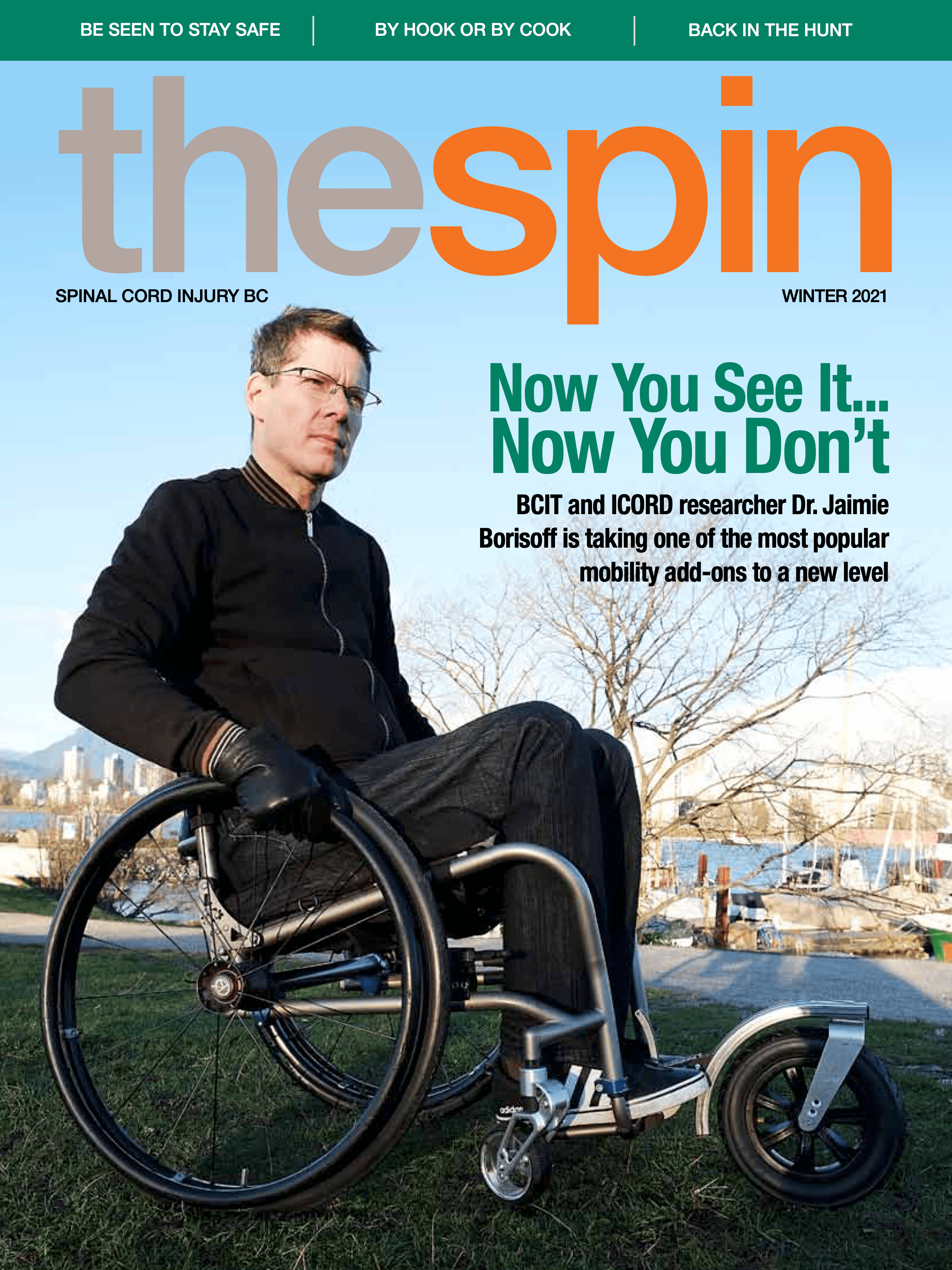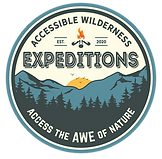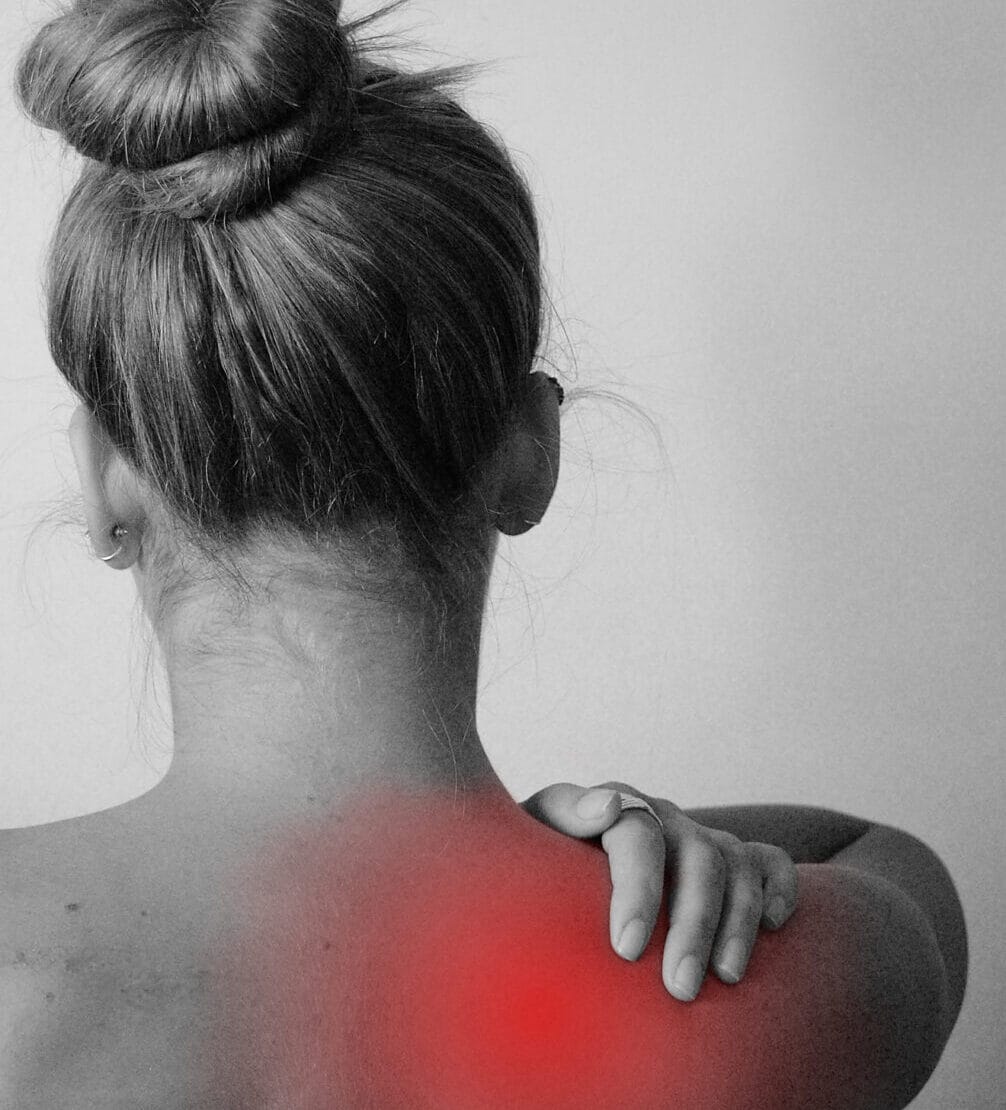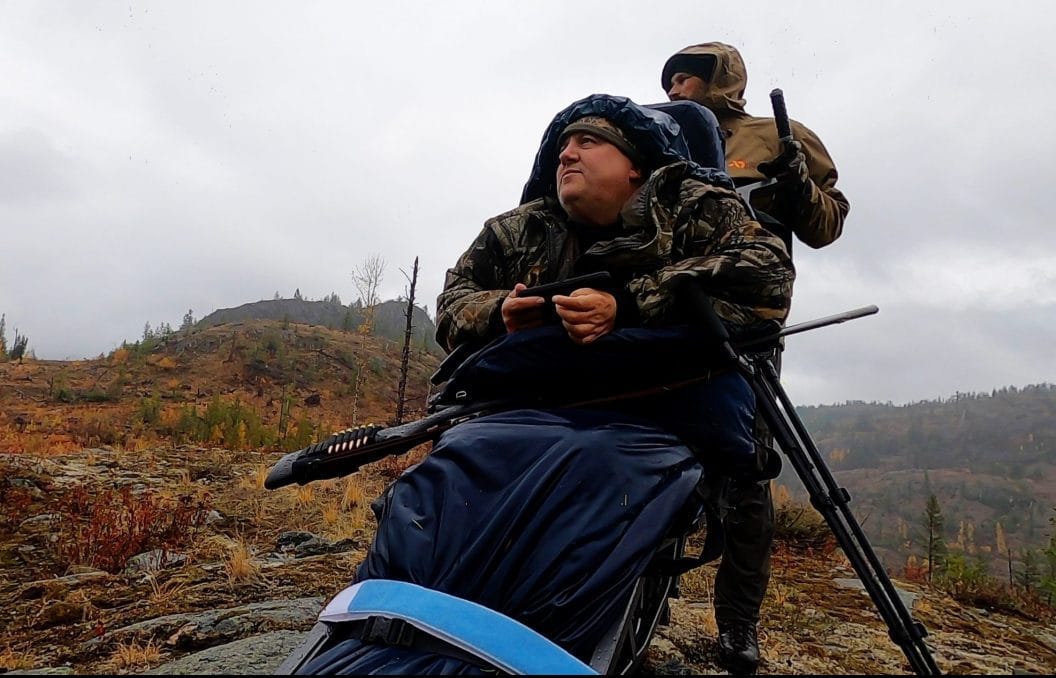
Frank LaBounty grew up surrounded by wilderness in his hometown of Prince George. Spending time in the backcountry was a big part of his life as he grew up, and that included hunting deer and moose.
He also chose to make his career in the backcountry. In 1998, while working as a machine operator in the logging industry, his life took an unexpected turn when an equipment malfunction resulted in a C5-6 incomplete SCI.
In the following years, with hospital and rehab in the rear view mirror, LaBounty got back to some of the things he loved doing prior to his injury. One of those was curling, and many readers no doubt recognize LaBounty as a five-time Canadian wheelchair curling champion.
But hunting, particularly expedition hunting deep in the backcountry, never appeared to be a viable option for him after his injury. “It’s hard to get back into hunting,” says LaBounty. “I have a permit to shoot out of my vehicle, but if you see something, you have to be lined up just perfect, as you can only shoot out your window— you don’t have a very big space.”
Earlier this year, our Northern BC Peer Program Coordinator, Brandy Stiles, gave LaBounty a heads up about an upcoming event—the 3rd Annual Rempel Builders Accessible Hunting Trip.
Accessible Hunting Trip Takes Off
Since 2019, Rempel Builders—one of the Okanagan’s leading commercial and luxury residential builders—has been providing sponsorship funding to Accessible Wilderness Expeditions (AWE), a program operating under the umbrella of Kelowna-based Community Recreation Initiatives Society (CRIS). With this funding, AWE has been able to provide an incredible opportunity each year for one or two people with a disability to take part in a four-day, fully inclusive backcountry hunting trip in southern BC.
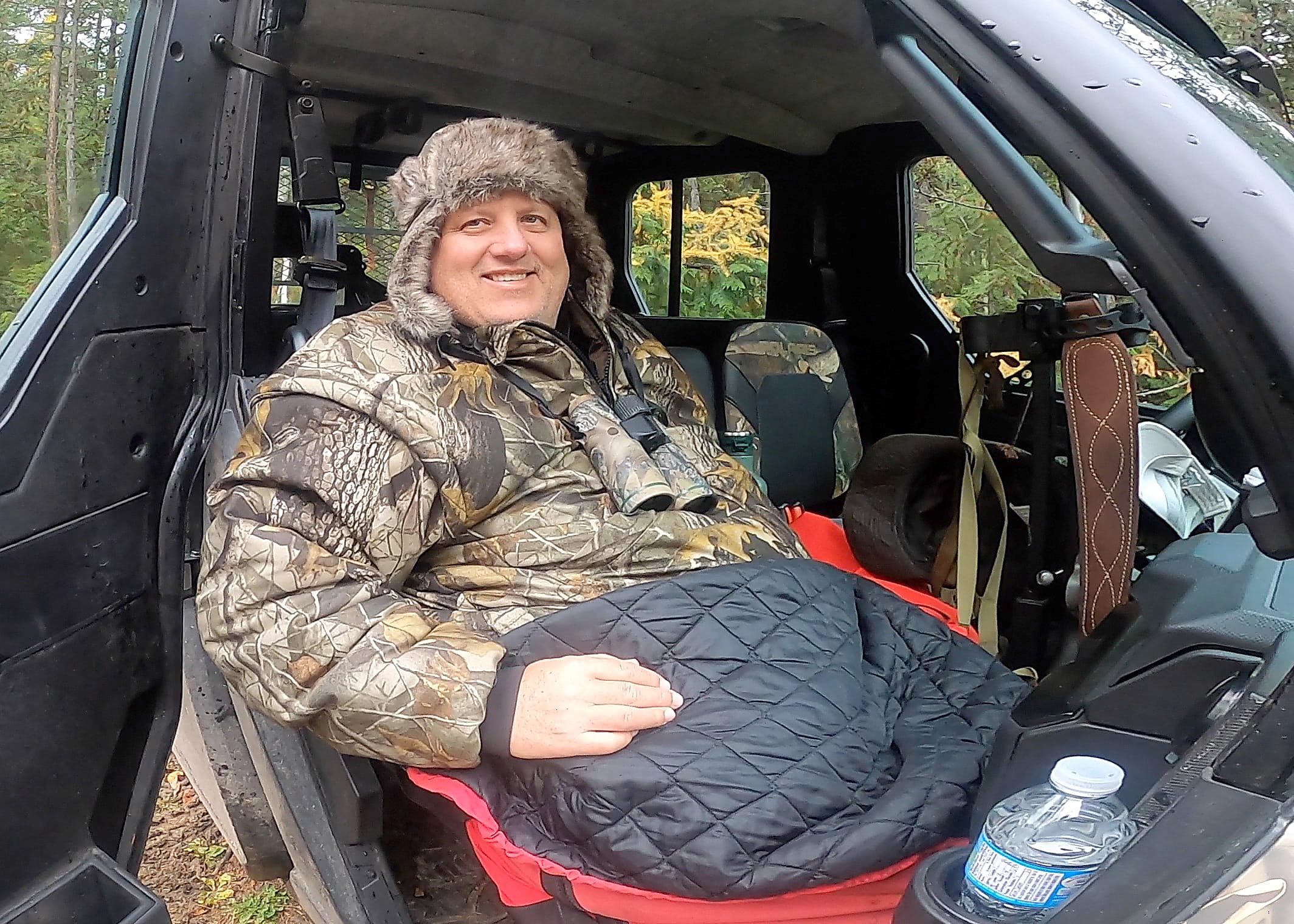
“I’m the type of person that will try it first and let everybody know how it was,” says LaBounty. “So when I heard about this hunt, I never hesitated—I applied right away.”
To his surprise, LaBounty was selected by AWE to be this year’s participant. He learned that, as the program’s guest, he’d be enjoying four days of accommodation, guided big game (deer) hunting, and backcountry exploration in Grand Forks, BC. He also learned there would be no cost to him, thanks to the expertise of the AWE program and the generosity of Rempel Builders.
“The connection with the Rempel family developed three years ago, when the owner of Rempel Builders, Reg Rempel, approached CRIS President Troy Becker and expressed his interest in funding an inclusive hunting trip for someone with an SCI or other disability,” explains Laura McEwan, AWE’s Manager of Program Delivery. “Troy pointed him towards the AWE program, which has similar partnerships with other funding partners who also offer annual funded experiences. The Rempels’ passion for hunting and supporting their community, paired with AWE expertise in accessible travel and adventure, made for a perfect pairing.”
“We started a company back several years ago called Adaptable Living to help facilitate barrier-free living for individuals in their home,” says Rempel, an avid outdoorsman himself. “After working with several customers and seeing the challenges that they face after experiencing a life-changing injury, not only physically but emotionally, and realizing that life was going to come with many more challenges, I thought, ‘What can we do to make a small difference?’ That’s when I reached out to my good friend Troy Becker, who has been running CRIS for the past 20 years in our community, and asked if he had ever done a hunting trip or would even consider doing one.
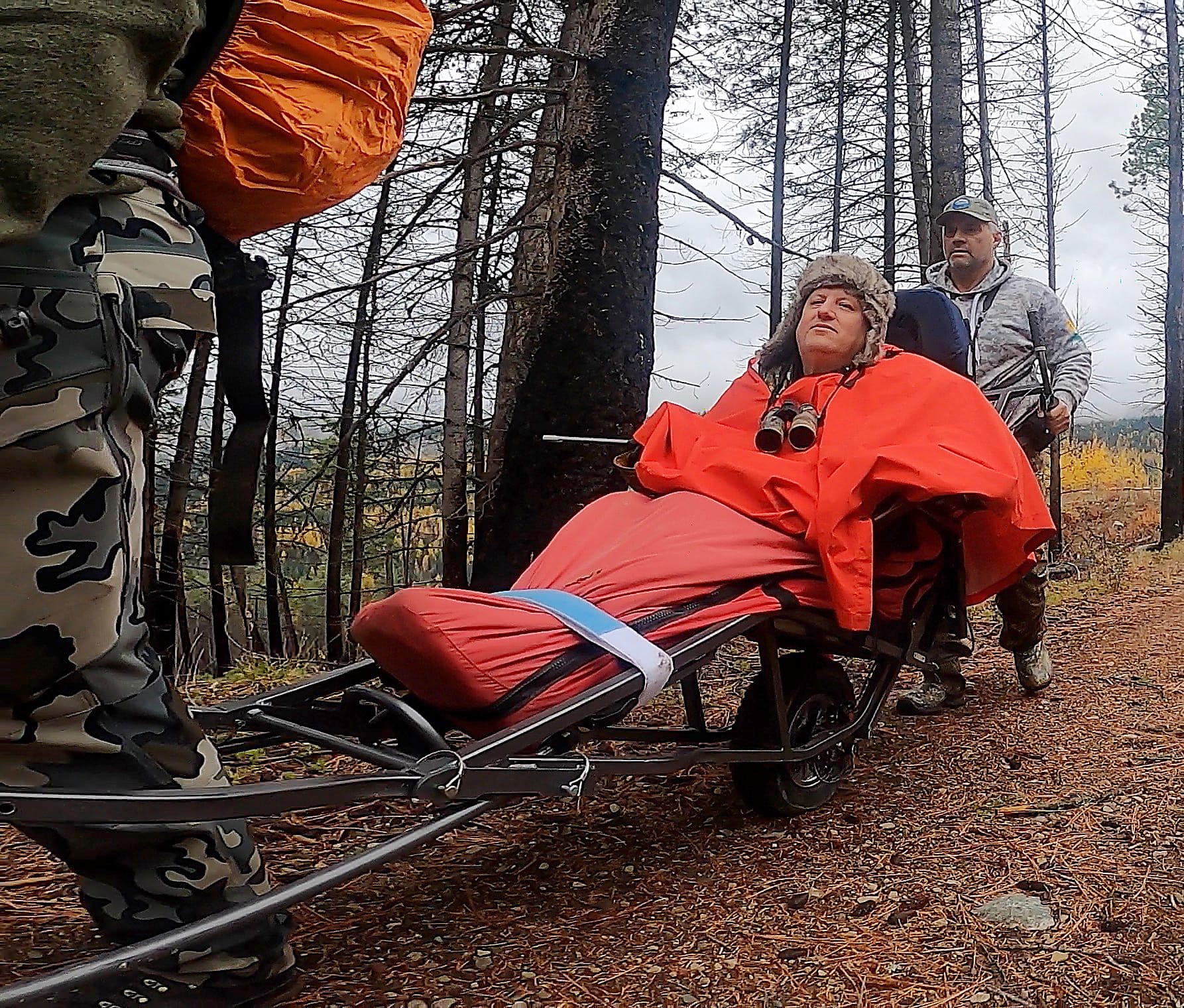
A Return to Hunting
“If you know Troy,” continues Rempel, “you know he loves any and all challenges and was on board immediately. It has been a rewarding and eye-opening experience for all involved as you come to the realization that there are very few barriers in life when we come together as a community and pull from everyone’s strengths and abilities for the common good of humanity.”
The first trip took place in the fall of 2019 and was deemed a great success— by the first participants, SCI BC peers Luke Eliason and Anand Kannan; the volunteers involved; and AWE and Rempel Builders. And that’s how it became an annual event. In 2020, with COVID-19 safety protocols in place, another SCI BC peer, William McCreight, was selected to take part.
“It was my first time getting back in the wilderness since my spinal cord injury,” said McCreight, who, like LaBounty, was an avid hunter before his SCI. “It’s difficult to put it into words, the feeling of getting back onto my journey of where it all began.”
Fast forward to this year, when it was LaBounty’s turn. Aside from fulfilling the standard BC hunting regulations requirements—providing his BC hunting license number, securing applicable game tags, and having a valid federal firearms permit, or PAL—there was little for him to do except show up in Grand Forks on October 21 with everything he needed to stay warm and dry for four days.
“Thanks to our sponsors, we were able to provide an all-inclusive, accessible trip for Frank,” says McEwan. “Our AWE Manager, trip leader and camp chef took care of all trip planning logistics, recruiting volunteers, booking accommodation, meal planning, and coordinating all the ins and outs of the expedition.”
She adds that LaBounty was consulted throughout the planning process, to determine his goals for the trip, and his health, personal care and dietary needs.
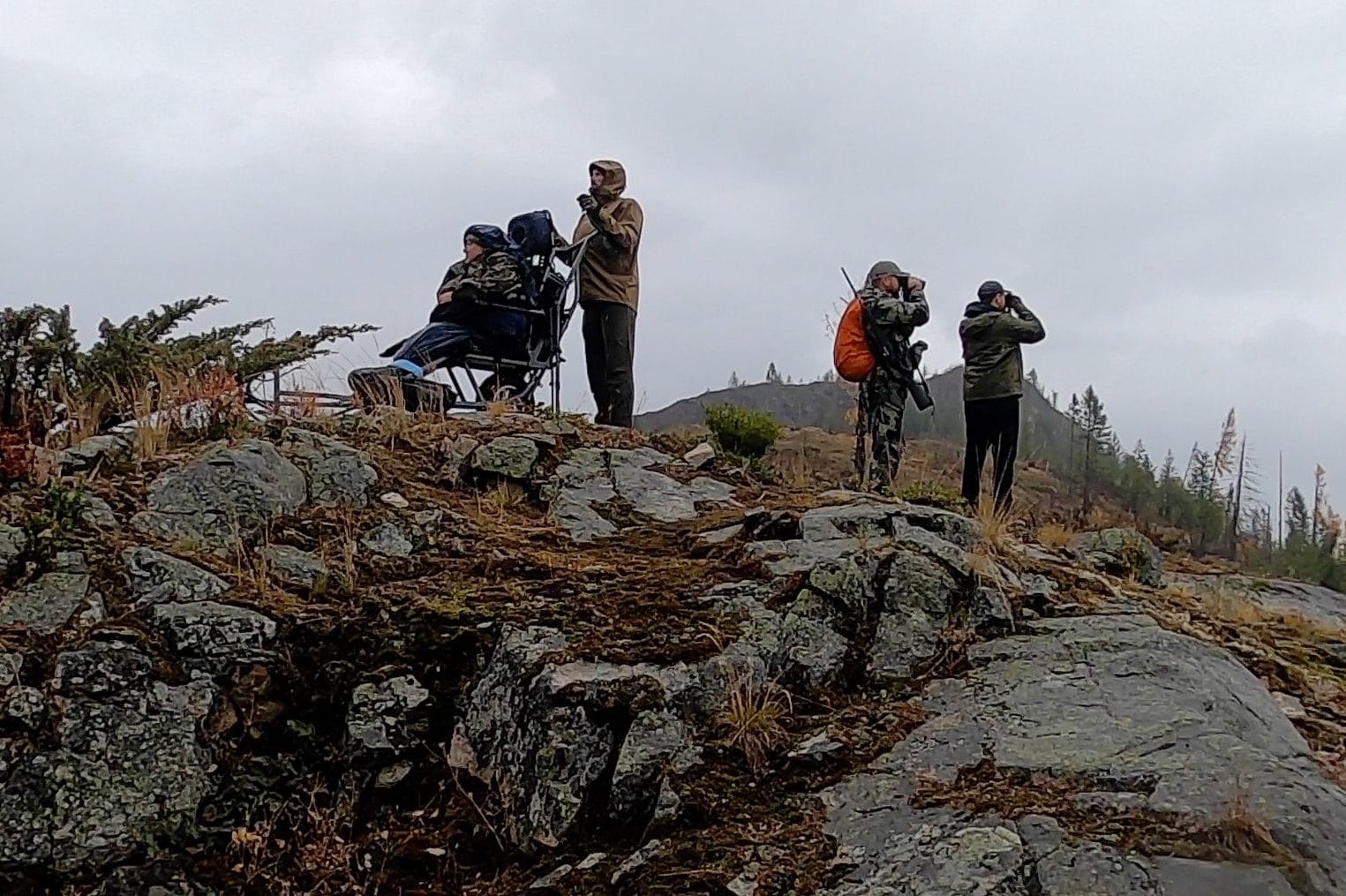
Accessible Wilderness Trip Details
“The program is awesome,” says LaBounty. “The organization was great, right down to the last detail. The sponsors were good—they supplied everything you needed and more. Everyone always had your safety in mind. The volunteers were great—I felt I was in safe hands all the time. A great group. The food was also good, and they had a large teepee that we had our meals in. It was always nice and warm and dry, and that was important because we had a lot of rain.”
While Frank’s accommodation—a post and beam cabin—wasn’t entirely barrier free, it was accessible enough that he and his personal caregivers had no problem keeping him comfortable and on his routines.
As for the actual hunting, it was a full on experience that was far more intense and satisfying than what LaBounty had ever been able to achieve from the cab of a pickup after his injury. “Frank was able to access remote hunting locations by using a combination of adaptive equipment including the TrailRider, side-by-side ATV, 4×4 vehicle, and hunting blinds,” says McEwan. “Each piece of equipment required adaptations to ensure Frank was comfortable and safe for the duration of the activity.”
One aspect of the adventure was particularly powerful for LaBounty—being able to get into the most rugged locations, thanks to the TrailRider and his own team of sherpas.
“I’d seen the TrailRider, but never tried it—I didn’t think it was for me. When I got in their TrailRider, I realized I was seeing places that I’d otherwise need a helicopter to access.”
The entire experience made such an impact on LaBounty that it’s since inspired him to get out hunting more and more.
“Since this trip, my son has started to come around to take me hunting,” he says. “We went out all last weekend and had a good time getting to know each other again.” He adds that he’s now exploring the idea of getting permission from a local farmer to set up a blind, which he thinks would work perfect for him and other hunters who use wheelchairs.
The fact that the experience has left LaBounty with the desire to get out more isn’t a surprise to McEwan. “CRIS and the AWE program are always seeking new partnerships and sponsorship opportunities. You can find more information and a link to our sponsorship packages on our website.”
This article was originally published in the Winter 2021 issue of The Spin. Read more stories from this issue, including:
- Be Seen to Stay Safe
- Building a Better Freewheel
- Now You See it, Now You Don’t
And more!
